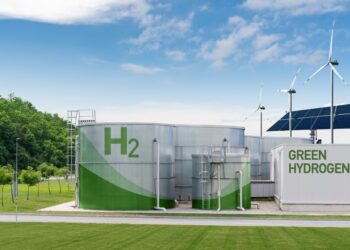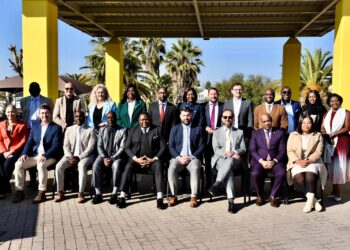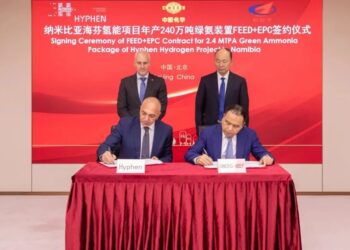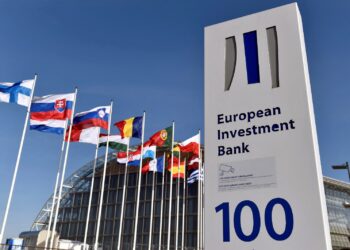
The European Union (EU) has reaffirmed its position as Namibia’s largest export market and third-largest source of imports, while pledging deeper cooperation in green hydrogen, raw materials, and governance reforms.
EU Ambassador to Namibia Ana Beatriz Martins said the Partnership Dialogue in Windhoek marked a new step in relations. “Today’s Dialogue is a momentous step in the relationship between Namibia and the EU and a valuable opportunity to deepen our mutual understanding on a broad range of topics,” she said.
Through the Economic Partnership Agreement, Namibia enjoys duty and quota-free access to EU markets, exporting fish, meat, grapes, and minerals, while importing fuels, pharmaceuticals, machinery, and vehicles.
“Ours is a partnership forged on the principles of solidarity, rooted in shared values of democracy, peace, and respect for human rights,” Martins said.
Minister of International Relations and Trade Selma Ashipala-Musavyi said the EU remains one of Namibia’s most important trading partners.
“This dynamic relationship represents a win-win exchange and mutually beneficial trade partnership,” she said.
She added that cooperation extends to technology, services, and development aligned with Vision 2030 and the Sixth National Development Plan.
“With NDP6, we call upon the European Union and all our partners to continue with us on this critical developmental journey towards achieving Vision 2030,” she said.
Green hydrogen is a key area of collaboration under the Strategic Partnership on Green Hydrogen and Critical Raw Materials. Martins said: “Projects like HyIron are not only pioneering a green industrialisation, but are also creating jobs for Namibians, advancing technology, and placing Namibia at the forefront of a sustainable global energy future.”
Both sides also highlighted education, gender equality, transparency, and anti-corruption as priorities, alongside global issues such as climate change and peace. “It is truly a partnership that works,” Martins said.
The EU has recently committed N$730 million to projects in Namibia, including the Green Industrialisation Project, the TIDRET renewable energy initiative, the Etunda Feedlot, and drought relief.











